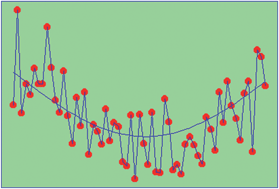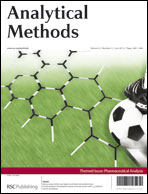Precision in chemical analysis: a critical survey of uses and abuses
Abstract
Precision is a key quantity in assessing the quality of chemical measurement results. It enters into considerations of uncertainty, fitness for purpose, method validation, instrumental performance, internal quality control, proficiency testing, and higher-level activities. The standard deviation of measurement results derived from a single analytical ‘system’ (a combination of a particular analytical procedure and a specific type of test material) depends on many factors, including the conditions of measurement, the state of the test material, and the concentration of the analyte. It is essential that these factors are properly matched to the use to which the precision information will be put.


 Please wait while we load your content...
Please wait while we load your content...